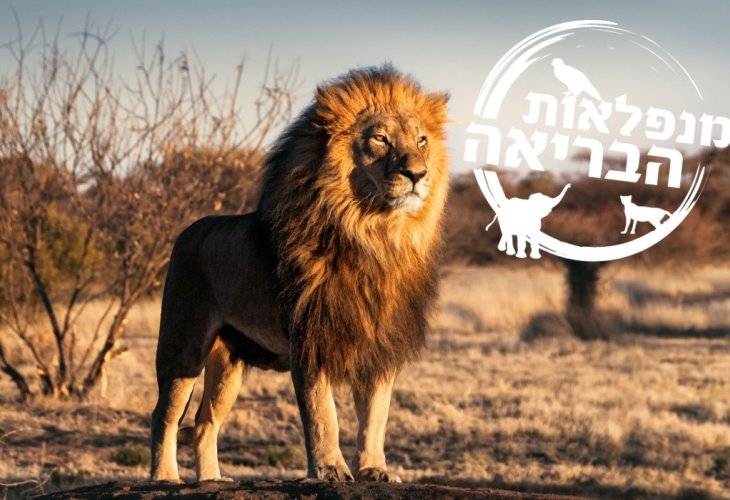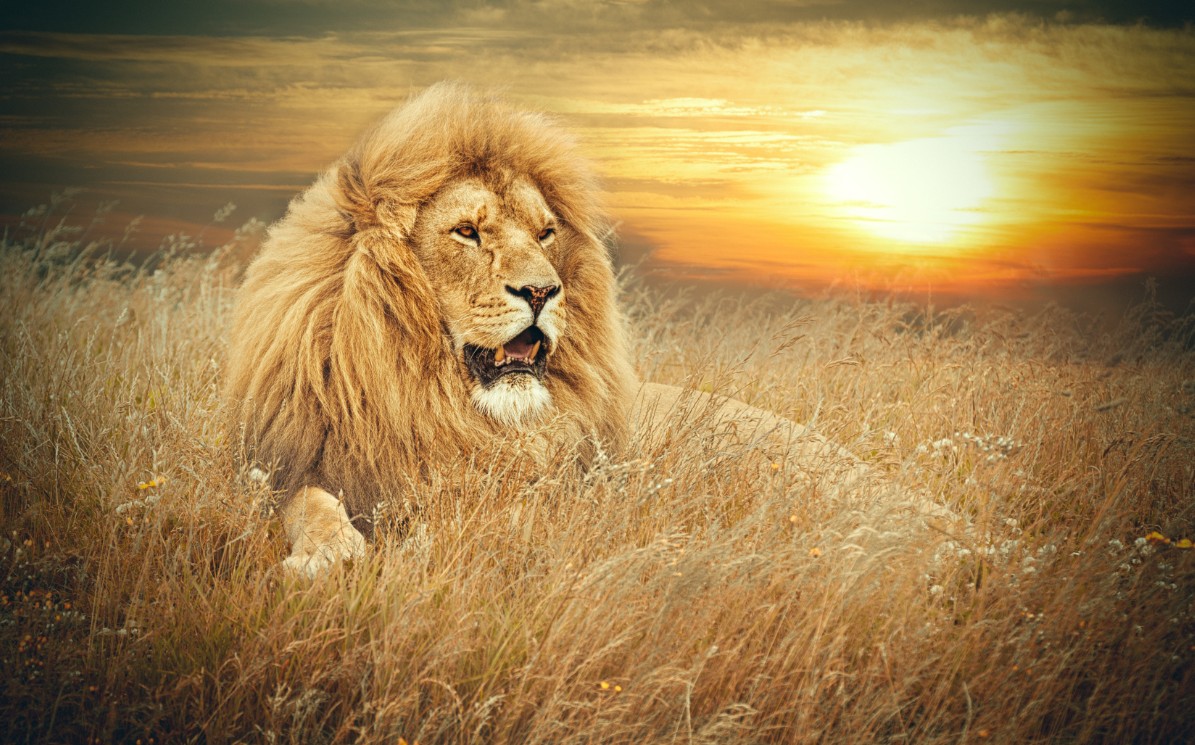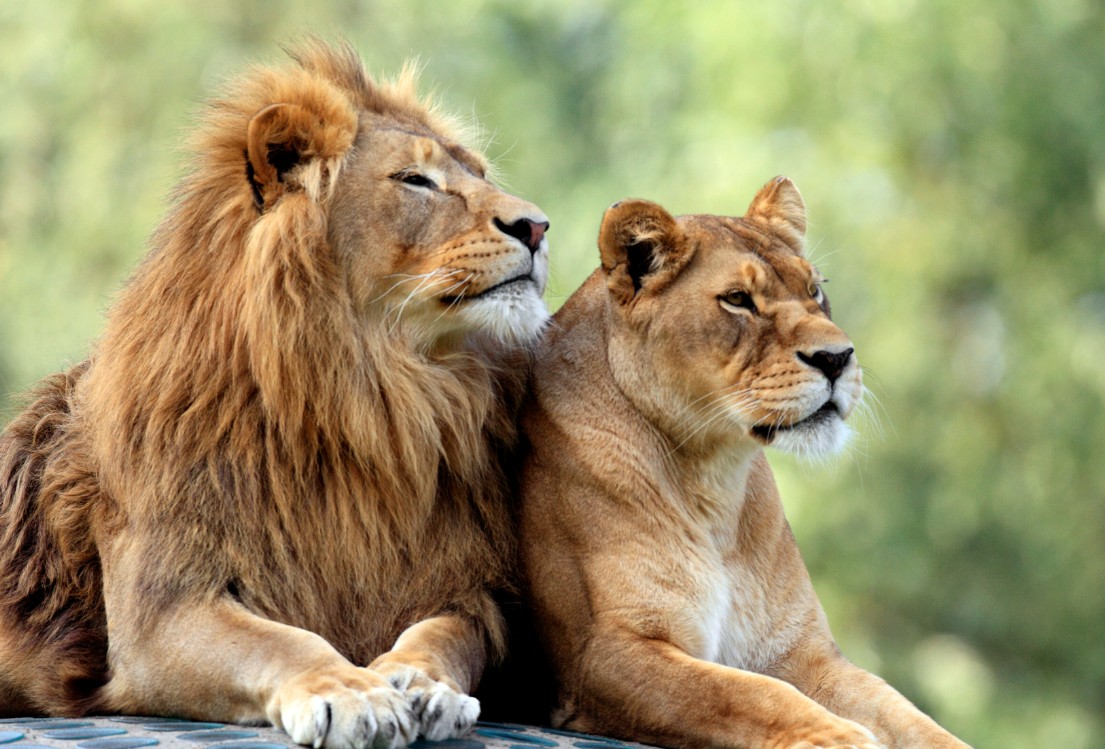Wonders of Creation
The Lion in the Bible: Symbolism, Names, and Wonders of the King of Beasts
Discover why this majestic animal symbolizes power, courage, and faith
 (Photo: Shutterstock)
(Photo: Shutterstock)The lion is a large animal that belongs to the cat family. Alongside the tiger, it is one of the largest land predators. Its body length can reach about 3 meters, it has a shoulder height of over one meter, and it can weigh up to 250 kilograms. The tip of its tail ends with a tuft of hair that contains a claw. A thick mane crowns its head and shoulders, distinguishing the male lion from the slightly smaller lioness, which lacks a mane.
The Lion in the Tanach (Bible)
The lion first appears in the Bible in Parshat Vayechi, when Yaakov (Jacob) blesses his son Yehuda (Judah): "Yehuda is a lion’s whelp; from the prey, my son, you have gone up. He crouched, he lay down as a lion, and as a lioness — who shall rouse him?" (Bereishit 49:9).
Later, Balaam blesses Israel with similar words: "He crouched, he lay down like a lion and as a lioness — who shall rouse him?" (Bamidbar 24:9).
The lion is mentioned in many other contexts:
When Moses blesses the tribe of Dan: "Dan is a lion’s whelp; he shall leap from Bashan" (Devarim 33:22).
Israel is compared to a lion: "Behold, a people that rises like a lioness and lifts itself up like a lion" (Bamidbar 23:24).
In the vision of the Messianic era: "The lion shall eat straw like the ox" (Yeshayahu 11:7).
The lion symbolizes strength, majesty, and kingship. Its roar strikes fear and awe. The Sages call it “the king of the animals”, based on Yechezkel's vision of the Divine Chariot: “The king among animals is the lion, the king among cattle is the ox, the king among birds is the eagle, and man is exalted over all of them; but the Holy One, blessed be He, is exalted above them all” (Chagigah 13b).
 (Photo: Shutterstock)
(Photo: Shutterstock)The lion is also one of the sacred symbols of Israel. In Shlomo Hamelech's (Solomon’s) Temple, lion figures adorned the sacred vessels (Melachim I, 7:29). The Rambam describes the Temple itself as being shaped like a lion — broad in front and narrow in back (Beit HaBechirah 4:10).
The importance of the lion is also reflected linguistically: it is mentioned 166 times in Tanach under various names, with “aryeh” (lion) itself appearing about 90 times — more than any other non-sacrificial animal.
Names of the Lion in Scripture
The Talmud teaches that the lion has six names: aryeh, kefir, lavi, layish, shachal, shachatz (Sanhedrin 95a). Other sources count seven, including gur (cub).
Aryeh / Ari – the common word for lion.
Lavi – still used today, connected linguistically to “lion” in European languages (Greek leon, German Löwe, English lion).
Layish – mentioned three times in the Bible and also the ancient name of the city of Dan (Shoftim 18).
Shachal – sometimes refers to a lion (Hosea 5:14), other times to large snakes (Tehillim 91:13).
Kefir – a young lion, or cub (Yeshayahu 11:6).
Shachatz – appears in Iyov (Job 28:8).
Remarkably, two verses in Iyov (4:10–11) gather five of these names together: "The roaring of the lion, and the voice of the fierce lion, and the teeth of the young lions are broken. The old lion perishes for lack of prey, and the whelps of the lioness are scattered."
Where Does the Lion Live?
The Bible describes the lion’s habitat as the forest (Yirmiyahu 12:8), the den or lair (Nachum 2:12), and the lion’s den (Daniel 6).
 (Photo: Shutterstock)
(Photo: Shutterstock)Rabbinic Teachings and Symbolism
Be Strong as a Lion – The Mishnah (Avot 5:20) teaches us to learn traits from animals, such as strengthening ourselves like a lion to do God’s will. Commentators like Rabbi Ovadiah of Bartenura explain this as having the courage to overcome the evil inclination.
“The lion has roared, who will not fear?” (Amos 3:8) – Just as a lion roars when prey is near, God responds when sin occurs. Punishment, like the lion’s attack, is inevitable.
“Better a living dog than a dead lion” (Kohelet 9:4) – A proverb meaning that life, even with suffering, is preferable to death.
Wonders of Creation
A starving lion can overpower nearly any animal, yet it rarely attacks giraffes (because of their powerful kicks), elephants, or buffalo.
What about humans? By God’s design, lions generally fear people and avoid attacking them. Still, if they learn that humans are easy prey, they may become dangerous.

